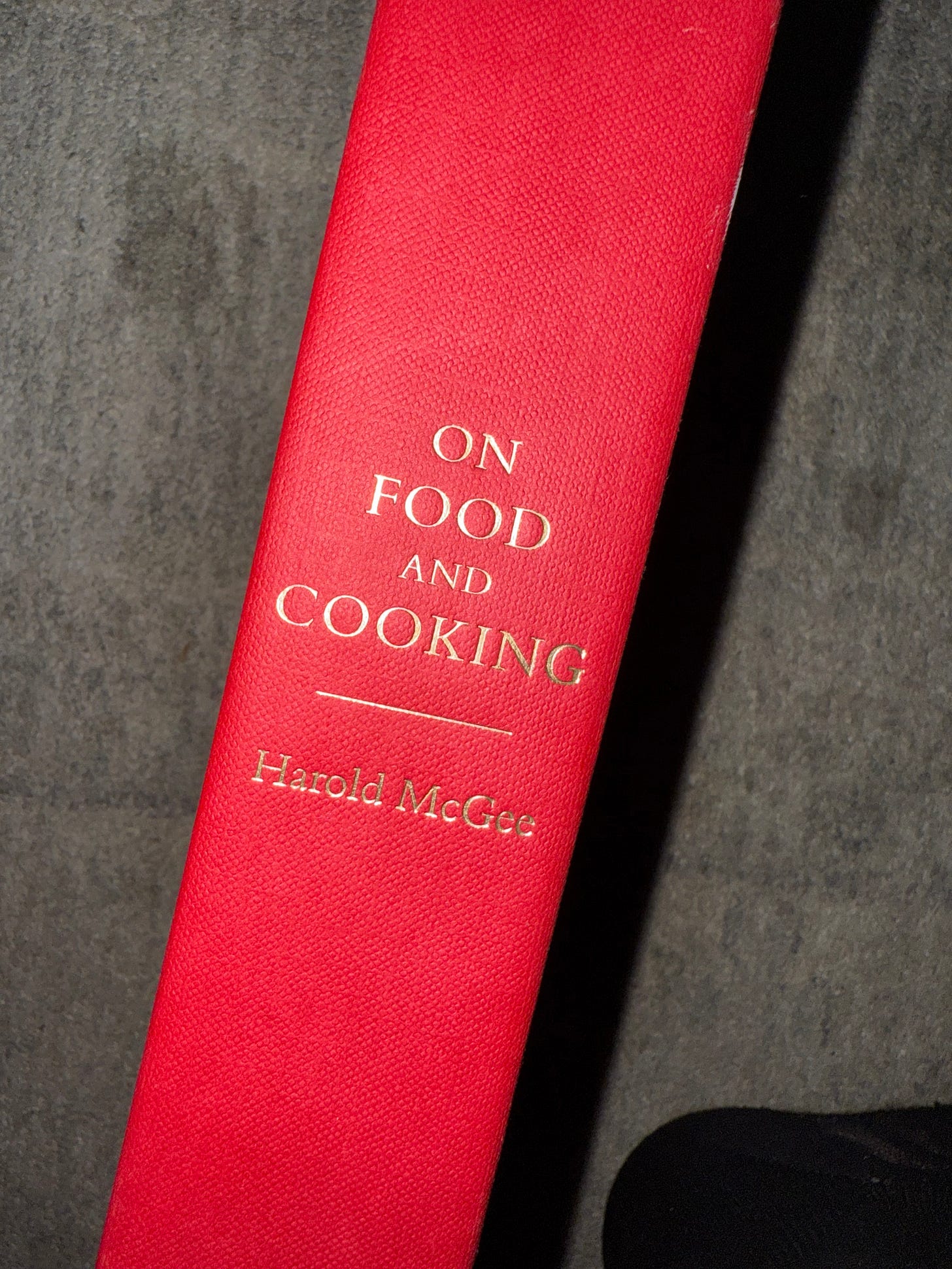Books That Changed Me
On food and Cooking by Harold McGee
Every serious cook remembers the first time they realized cooking isn’t just about following recipes—it’s about understanding *why* food behaves the way it does. For me, that realization came with Harold McGee’s *On Food and Cooking: The Science and Lore of the Kitchen*. This isn’t just a book; it’s the foundation for anyone who wants to approach cooking as a craft, not a hobby.
Let me be clear: if you’re serious about food, you own this book. It’s not optional. In culinary school, *On Food and Cooking* was as essential as a sharp knife. While others may have tried to memorize recipes, those of us who really cared studied McGee. He breaks down the science—why eggs coagulate, why bread rises, why a sauce emulsifies or doesn’t—with a depth and clarity that no other resource comes close to matching.
Even years later, I still reach for my copy. It’s dog-eared, marked and one of the most trusted tools in my kitchen. Just the other day, I revisited the chapter on dairy to better understand how cream behaves in a sauce. These are the kinds of details that separate good cooking from great cooking, and McGee delivers them in spades.
This book does what no recipe ever could: it teaches you how to think like a chef. It gives you the tools to troubleshoot, innovate, and refine your craft. When your soufflé collapses or your bread dough refuses to rise, McGee is the voice that explains not just *what* went wrong, but *why*. That kind of knowledge is invaluable in this industry, where precision and understanding are the difference between a passable dish and a perfect one.
More importantly, *On Food and Cooking* doesn’t just teach technique—it inspires curiosity. McGee’s writing invites you to dig deeper, to approach food with the same level of respect and rigor that you would any serious discipline. He reminds us that cooking is not just an art but a science, and mastering both is what elevates a cook into a chef.
This book made me a better cook and a better thinker in the kitchen. Every culinary student should have a copy, but this book isn’t just for beginners. It’s for anyone who takes food seriously, whether you’re starting out or leading a professional kitchen. If you don’t already own it, you’re behind. It’s time to catch up.






